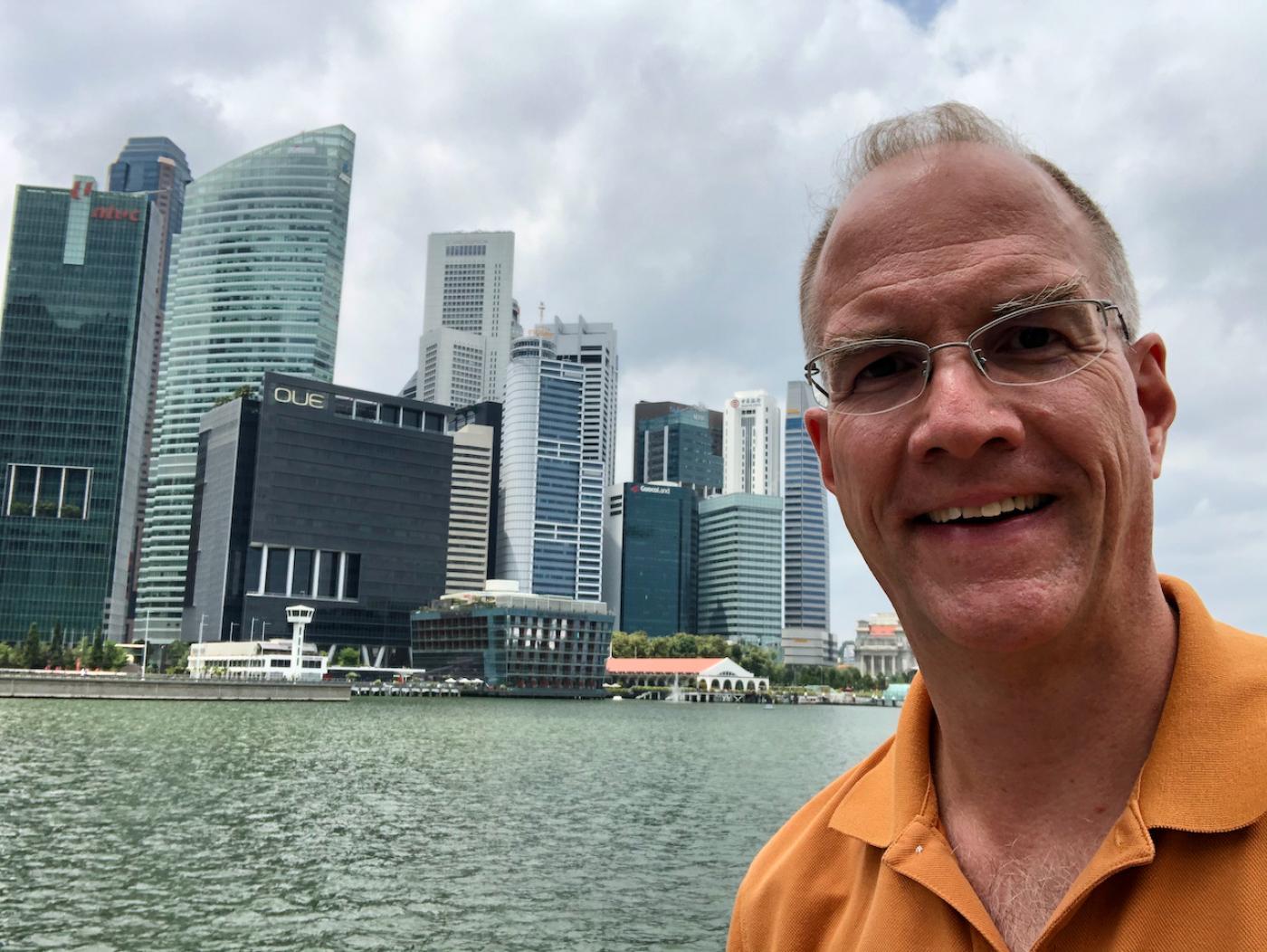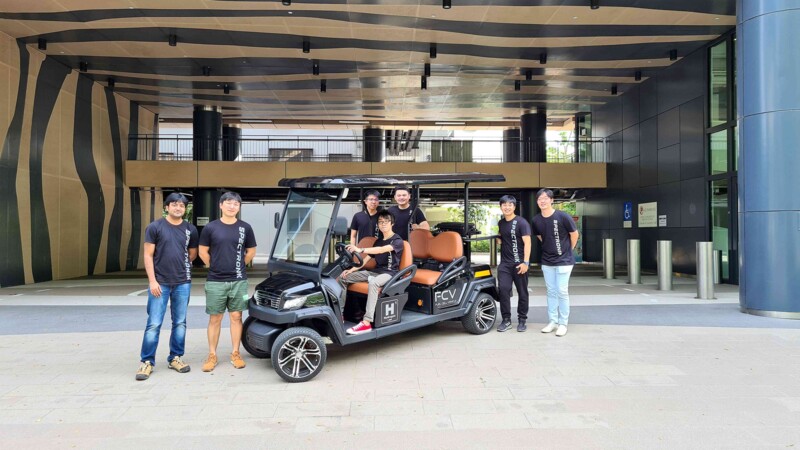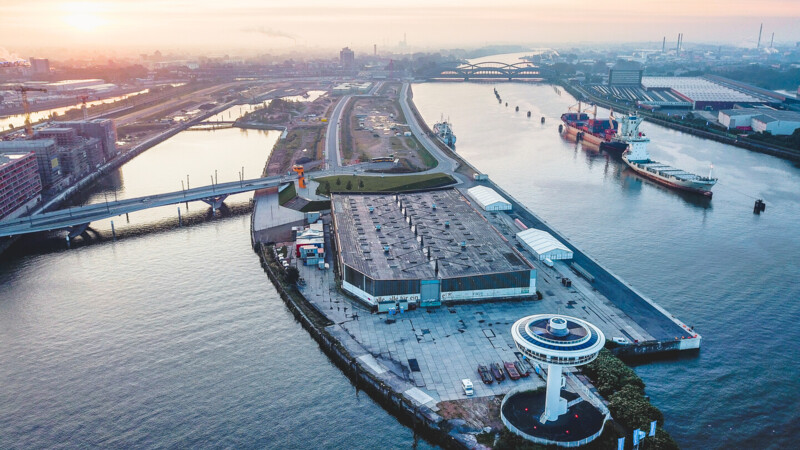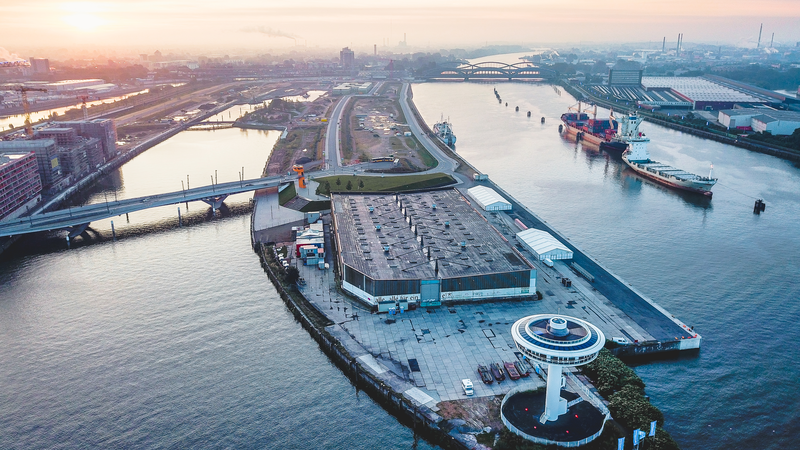Is the vaccine as scarce as it is in Hamburg at present?
Yes, the vaccination rate proportionate to the population is currently 4.4 per cent. Most frontliners have been vaccinated and vaccinations of the over 70s have just begun.
How do you view the introduction of digital tracking, which Germany does not allow for data protection reasons?
Transparency and tracking are elementary in fighting corona. To boost transparency, the Ministry of Health announced the latest number of infections and information on What's App initially twice a day and now once daily. Safe Distance Ambassadors make friendly requests in business districts to comply with tracking, mask-wearing and distance-keeping. Tracking is done with QR codes in many places, stores, restaurants, businesses, buildings or cultural institutions using the official app TraceTogether or a scanning app. Other countries like Australia use such tracking apps very successfully. There is, for instance, a token for older people who do not have mobile phones. Singapore often takes a progressive startup approach to new technologies and allows the use, mostly in a test run, before the laws are adapted based on the actual experience.
Can you outline the forecasts for tourism in Singapore?
The Green Lane with Germany, which had been in force for essential business and official travel since December, has been suspended temporarily. Initial attempts at tourism with Hong Kong have also been postponed. In my opinion, the current vaccination process will delay international tourism by air, which is the norm for Singapore, until a certain level of vaccination has been achieved. There will be no significant intercontinental tourism before the fourth quarter of 2021.
Has Singapore implemented any support measures for local companies?
Singapore has taken very extensive support measures e.g., subsidies for personnel expenses so that employees are not laid off, to the equivalent of some EUR 62 billion. These are generally set at different levels for different industries depending on how they have been impacted.
The Word Economic Forum (WEF) in Singapore has been postponed from May until August 2021 because of the ongoing vaccinations. What do you expect from the meeting?
The systems and discipline permitting meetings with up to 50 delegates or cultural events with up to 250 participants have given Singapore the confidence that it can hold a major international event like the WEF. We will certainly gain more experience here and refine processes over the coming months. Given the current pandemic, hosting the WEF in Singapore offers a unique opportunity to focus on global problems such as sustainability, climate change, food security, social responsibility and social transformation after COVID-19. This requires close co-operation between all stakeholders in the various world regions.
What are Singapore's issues of the future?
Singapore is focusing on topics such as supply chain management and security. It wants to expand its position as a regional e-commerce, logistics hub. Urban development and mobility are undergoing dynamic developments. Sustainability is coming to the fore and changing how we work, learn or spend our leisure. Food security also plays a major role in this small city state and the country aims to produce 30 per cent of food itself by 2030. This would boost climate protection at the same time. The pandemic has highlighted many of these issues and accelerated the acceptance and use of many new technologies significantly.
You have shown great commitment and trust during your collaboration with Hamburg's startup scene. You are considered very well networked. Can you outline concrete projects?
The startup scene is exciting and agile and there is always something new. I focus on the maritime and logistics sector, fintech/finance and renewable energies/sustainability. I try to boost co-operation between Hamburg/Germany and Singapore in my role as mentor, advisor or director, e.g. in development or marketing. Close interaction is important. The projects include autonomous shipping, underwater drones, factoring (fintechs) and a platform for financing renewable energies.
Will Singapore emerge stronger from the global crisis? Can that benefit its good, important trade links with Hamburg?
Singapore is always seeking to define its position in the world. For a small country without natural resources, that is difficult, but all the more important. As the centre of the ASEAN region and in what will be the fourth largest economic area in future with a burgeoning middle class, and as a well developed, flexible urban area, Singapore will emerge stronger from the global crisis. The challenges of the future and solutions, e.g. working methods or climate protection, will be solved in the world's major cities. International networks on various topics will play an increasingly important role. Many opportunities for closer co-operation will emerge in future as Hamburg and Singapore have many common focal points and issues, such as ports, logistics, mobility, renewable energies, healthcare and nutrition.
Many thanks for the interview, Mr. Schmidt.



